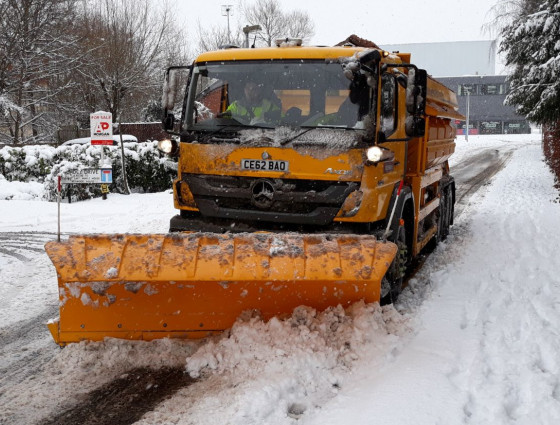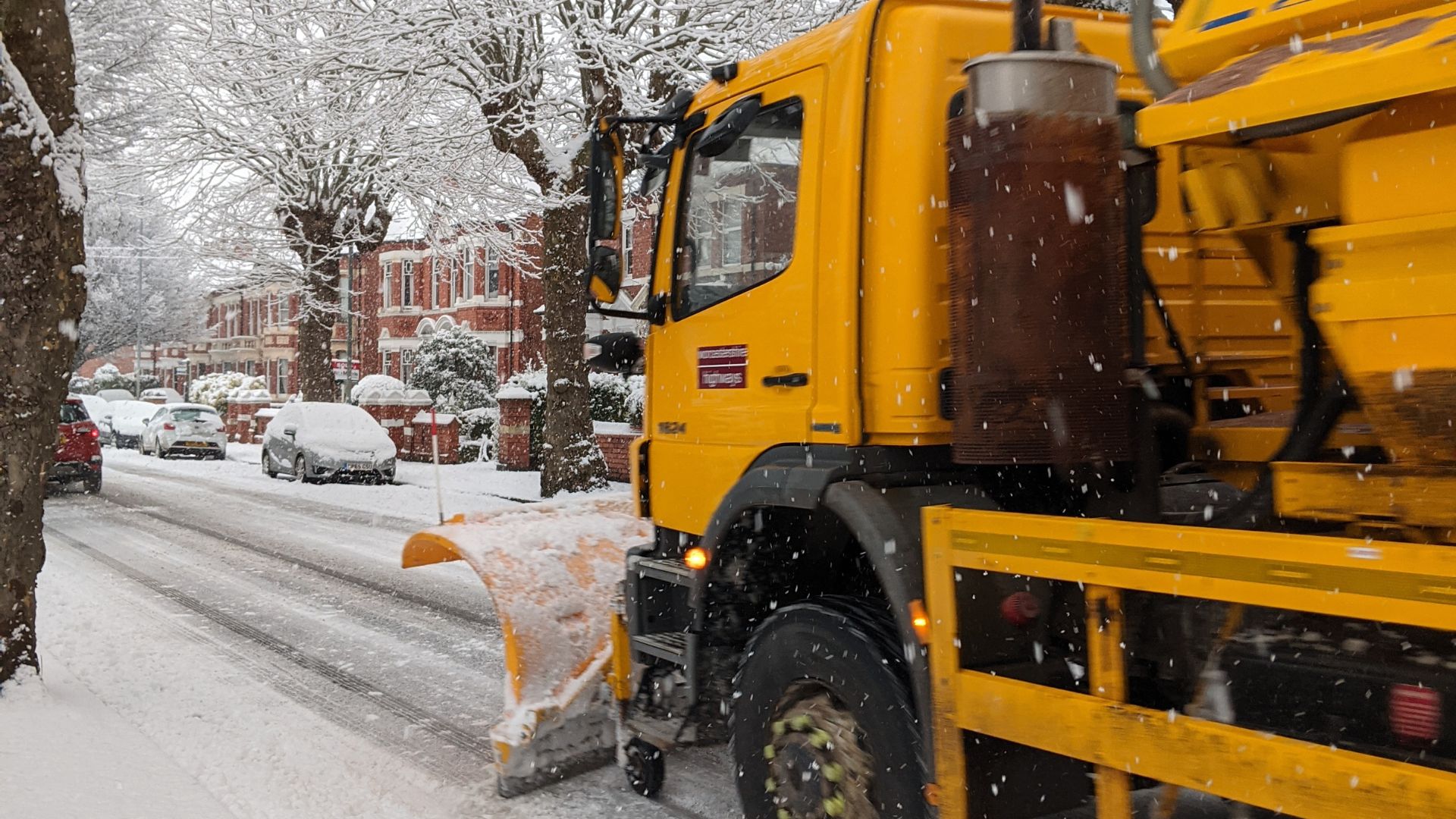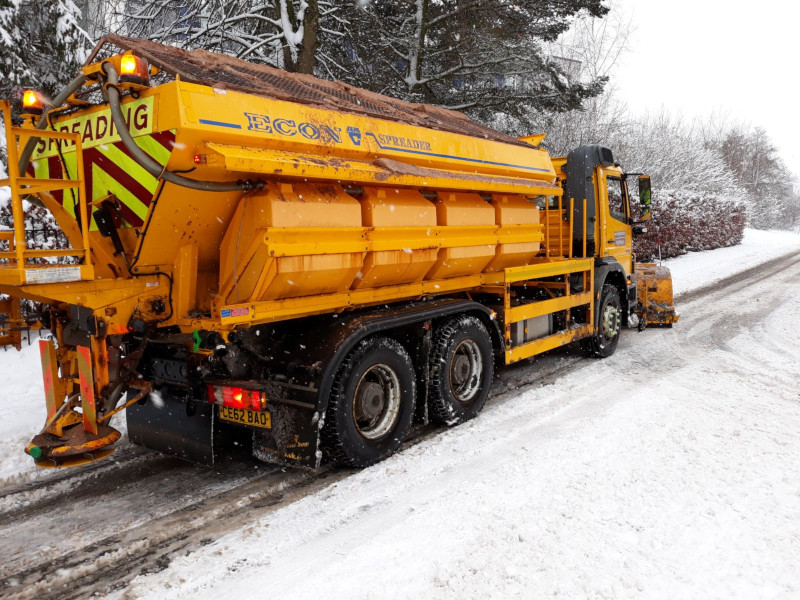
Gritting, ice and snow
See grit route information, grit bin locations and advice on travelling in winter.
Gritting responsibility
We are responsible for providing a winter service on adopted public highways within the county except for motorways and trunk roads.
About our gritting routes
The purpose of the winter service is to reduce the effects of snow and ice on the roads by treating the highway with salt. The service is essential for public safety and to the national and local economy in maintaining ice free roads.
Routes are split into two types:
The primary routes (shown in red on the map)
Are routes that are given high priority by the gritters and are treated first. Routes to be treated include:
- the Principal Road Network, Main Distributor roads and Secondary Distributor roads (as defined in the network carriageway hierarchy)
- commuter routes (rural roads carrying more than 2,000 vehicles per day)
- locally important roads in the carriageway hierarchy
- at least one route into each village so far is as reasonably practicable
- major bus routes (in urban areas roads with 4 or more service buses per hour and in rural areas 2 or more service buses per hour)
- 500m from schools and colleges
- emergency service locations - police stations, fire stations, hospitals, and ambulance stations
The secondary routes (shown in blue on the map)
Are routes that are treated in sever weather conditions such as freezing rain forming ice on surfaces and heavy falling or lying snow. They are treated as long as there are resources available and these resources are not needed for the primary network. The primary routes will be treated first. Routes to be treated include:
- key local, village and estate distributor roads having significant traffic flows
- industrial estate spine roads
- retail estate spine roads
- minor bus routes (in urban areas roads with 3 or less service buses per hour and in rural areas 1 or less service buses per hour)
- school transport routes operated by or for the Council
- outside schools and colleges if reasonably practicable
- outside local health facilities
- outside or near to concentrations of people with disability or vulnerability, if reasonably practicable
The council salt 2,371km of the adopted road network. With the available resources and time constraints it is not reasonably practicable to provide the service on all roads or to ensure all surfaces are kept free of ice or snow at all times, even on the treated parts of the network.
Weather updates
Travelling in winter
National Highways advice on how to make your journeys as smooth and safe as possible.
Travelling in winter (National Highways)
Winter driving - how we help you on our roads (National Highways)



 Facebook
Facebook X
X Email
Email WhatsApp
WhatsApp Messenger
Messenger